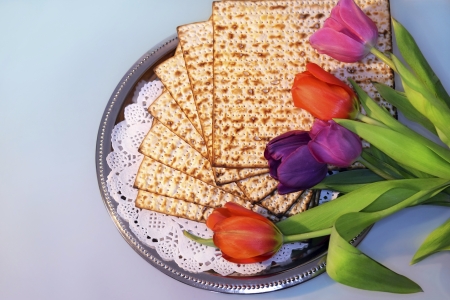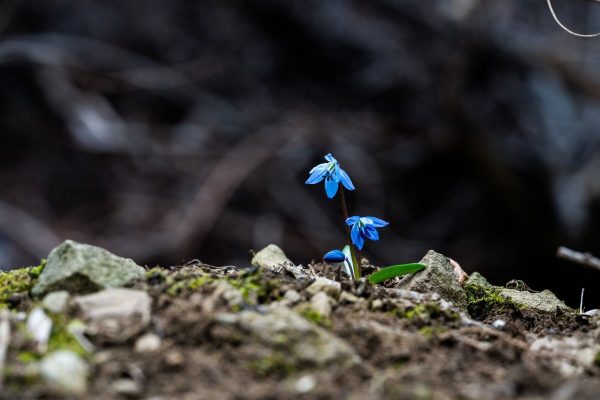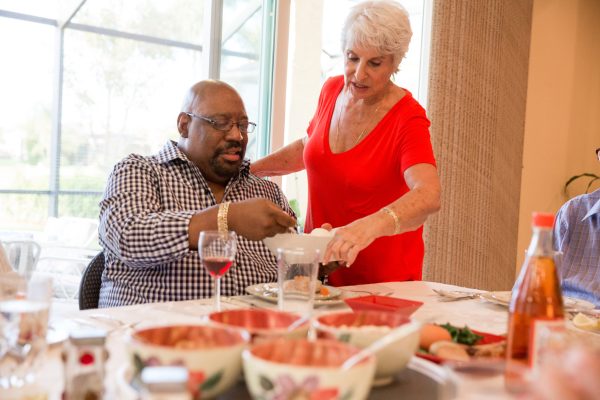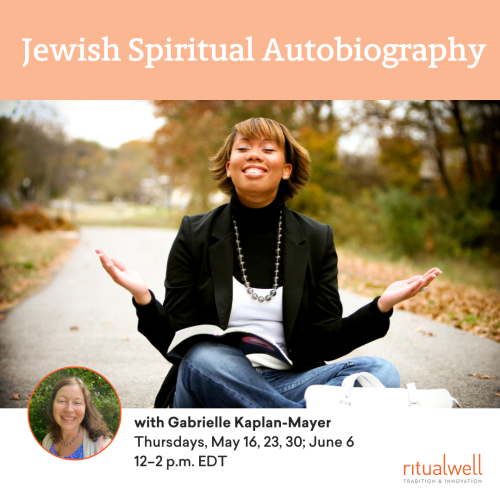While the four cups are central to the traditional haggadahLit. "Telling.” The haggadah is the book used at the seder table on Passover to tell the story of the Exodus, the central commandment of the holiday. It is rich in song, prayer, and legend. There are many different version of the Haggadah produced throughout Jewish history., they are in many ways a symbol ready to be imbued with additional meanings. Aside from connecting the four cups to God’s four reiterations of the promise to take the Children out of Egypt, the traditional haggadah doesn’t have a lot to say about the four cups. In feminist haggadot the cups have been used to honor Jewish women, either individuals or grouped in various ways. Choose from the following example or write your own cup dedications, honoring members of your family or community.
Before the first cup read:
Tonight we will drink four cups of wine, traditionally linked to God’s four promises to IsraelLit. ''the one who struggles with God.'' Israel means many things. It is first used with reference to Jacob, whose name is changed to Israel (Genesis 32:29), the one who struggles with God. Jacob's children, the Jewish people, become B'nai Israel, the children of Israel. The name also refers to the land of Israel and the State of Israel..
As it is written, “I will bring you out from under the burdens of Egypt. I will deliver you from bondage. I will redeem you with an outstretched arm and great judgments. I will take you to be my people and I will be your God.” (Exodus 6:6-7)
In this sederLit. Order. The festive meal conducted on Passover night, in a specific order with specific rituals to symbolize aspects of the Exodus from Egypt. It is conducted following the haggadah, a book for this purpose. The mystics of Sefat also created a seder for Tu B'shvat, the new year of the trees. the four cups of wine are also linked to historical and living Jewish women, who in their own eras have acted as God’s partners in fulfilling the divine promises of redemption and freedom.
As it is written, “It was for the sake of the righteous women of that generation that we were redeemed from Egypt.” (Babylonian TalmudThe rabbinic compendium of lore and legend composed between 200 and 500 CE. Study of the Talmud is the focus of rabbinic scholarship. The Talmud has two versions, the main Babylonian version (Bavli) and the smaller Jerusalem version (Yerushalmi). It is written in Rabbinic Hebrew and Aramaic., Sotah 9b)
The First Cup
V’hotzeiti etchem mitachat sivlot MitzrayimLit. Egypt. Because the Hebrew word for narrow is tzar, Mitzrayim is also understood as "narrowness," as in, the narrow and confining places in life from which one emerges physically and spiritually.
“…I will bring you out from under the burdens of Egypt” (Exodus 6:6)
The first cup we drink tonight is linked to the verse from Exodus which tells of God’s promise to bring the Israelites out from under the burdens of Egypt. With this cup we honor Jewish women throughout history who worked to bring Jews out from under the burdens of poverty, oppression and antisemitism in the many Egypts where Jews have lived.
We dedicate this cup to: Dona Gracia Nasi, Emma Lazarus, HannahHannah is the mother of the prophet Samuel, who, through her prayers, is rewarded a child. She herself is also considered a prophet. Hannah's intense devotional style of prayer becomes the model, in rabbinic Judaism, for prayer in general. Greenebaum Solomon, Bertha Pappenheim, and RachelLavan's younger daughter and Jacob's beloved wife second wife (after he is initially tricked into marrying her older sister, Leah). Rachel grieves throughout her life that she is barren while Leah is so fertile. Ultimately, Rachel gives birth to Joseph and dies in childbirth with Benjamin. Rachel is remembered as compassionate (she is said to still weep for her children), and infertile women often invoke Rachel as a kind of intercessor and visit her tomb on the road to Bethlehem. Auerbach.
Guidance: Invite people around the table to add names of women to honor with this cup. Select and read a biography of one of the above women. Alternatively, choose a woman from your own family or community and share her story.
The Second Cup
V’hitzalti etchem mei-avodatam
“I will deliver you from under their bondage” (Exodus 6:6)
The second cup recalls God’s promise to deliver the slaves from their bondage. With this cup, we honor women who used their own experiences of “the narrow places” to empower others to deliver themselves from bondage.
We dedicate this cup to: Glikl of Hameln, Pauline Newman, Rose Schneiderman, Lillian Wald, Manya Wilbushewitch Shochat.
Guidance: Invite people around the table to add names of women to honor with this cup. Select and read a biography of one of the above women. Alternatively, choose a woman from your own family or community and share her story.
The Third Cup
V’ga-alti etchem bizro-a n’tuya uvish’fatim g’dolim
“And I will redeem you with an outstretched arm and with great judgments” (Exodus 6:6)
The third cup we drink tonight is linked to the verse from Exodus which tells of God’s promise to redeem Israel with an outstretched arm and with great judgements. As the “outstretched arm” is a manifestation of God’s power, we recall how Jewish women who used their power and strength to make real this Divine promise of redemption. We dedicate this cup to: Henrietta Szold, Rachel Kagan, Justine Wise Polier, Bella Abzug.
Invite people around the table to add names of women to honor with this cup. Select and read a biography of one of the above women. Alternatively, choose a woman from your own family or community and share her story.
The Fourth Cup
V’lakachti etchem li l’am v’hayiti lachem leilohim
“And I will take you to be my people and I will be your God” (Exodus 6:7)
The fourth cup we drink tonight is linked to the verse from Exodus which tells of God’s promise to create a special relationship with Israel. We therefore honor women who, by teaching Jewish texts and promoting Jewish education, have brought individual Jews into a relationship with God and the Jewish people. We dedicate this cup to: Asenath Bat Samuel Barazani, Rachel Morpugo, RebeccaThe second Jewish matriarch, Isaac's wife, and mother to Jacob and Esau. Rebecca is an active parent, talking to God when she is pregnant and learning the fate of her children, then ultimately manipulating Isaac and the children to ensure Jacob's ascendancy. Her Hebrew name is Rivka. Gratz, JudithJudith saved her people by seducing Holofernes, the enemy general, and then decapitating him. The story of Judith, found in the apocrypha, is associated with Chanukah (relating to the tradition of eating cheese dishes because she seduced the general and fed him dairy). Her Hebrew name is Yehudit. Kaplan Eisenstein, Nechama Leibowitz.
Invite people around the table to add names of women to honor with this cup. Select and read a biography of one of the above women. Alternatively, choose a woman from your own family or community and share her story.













